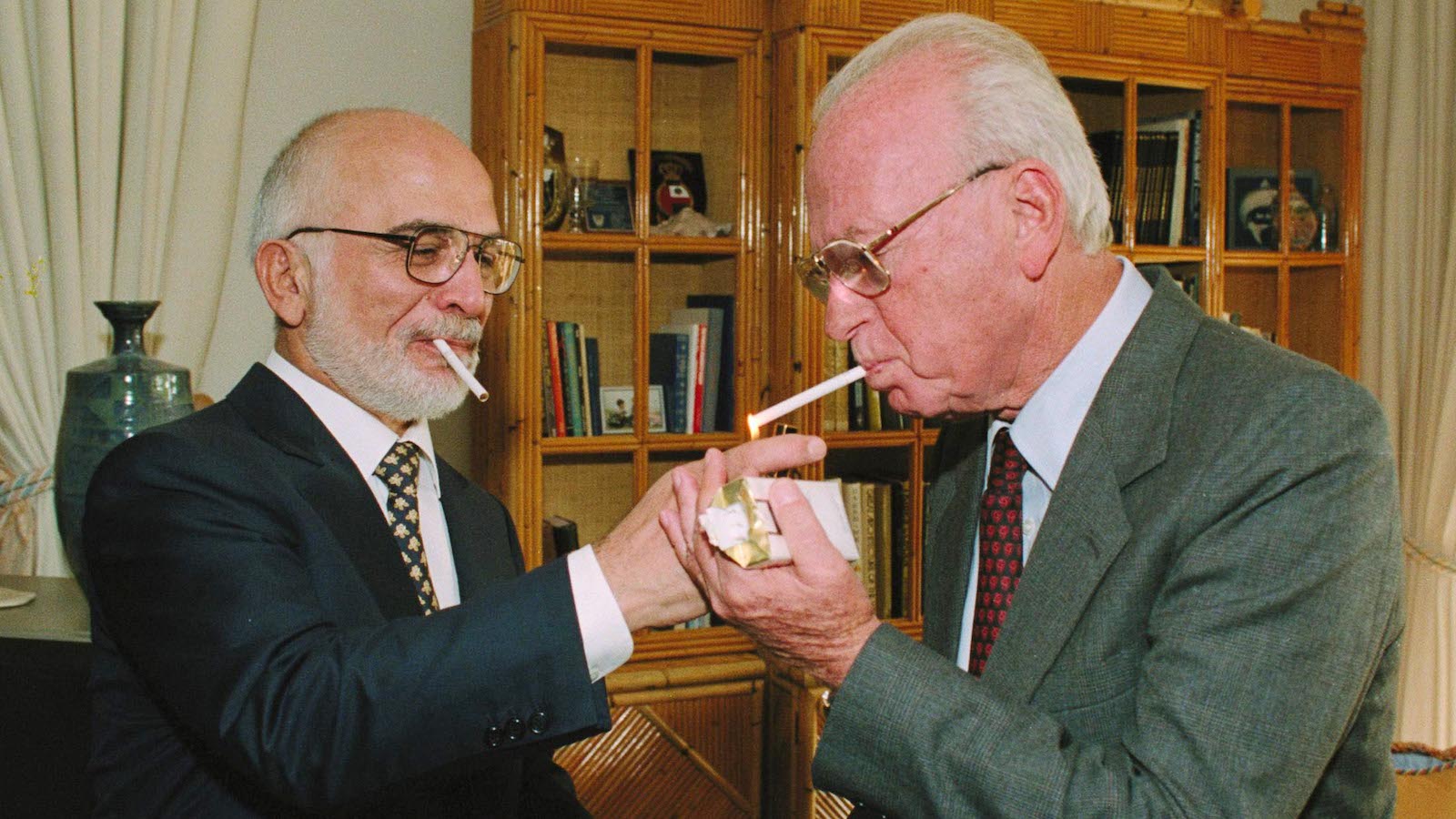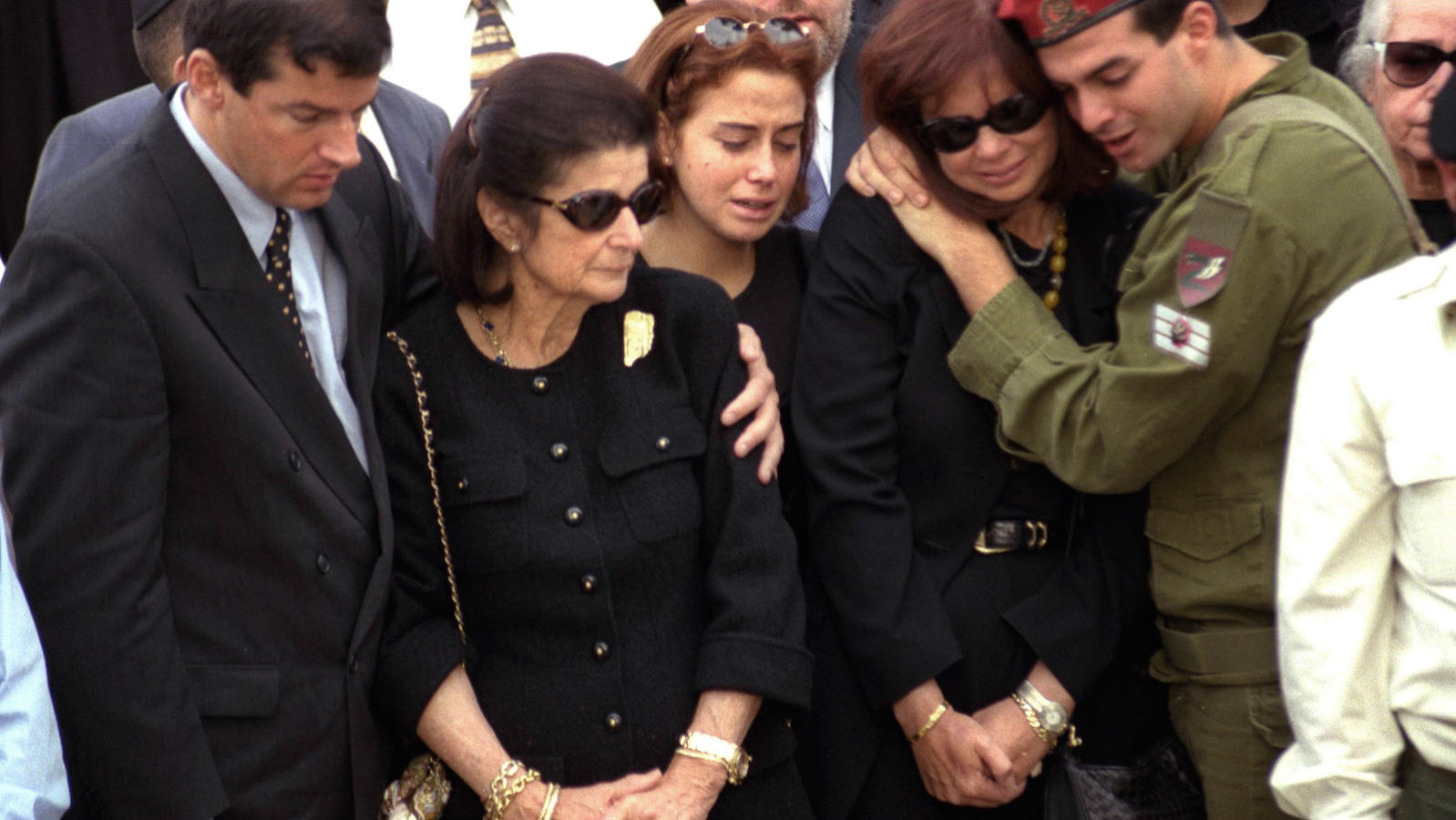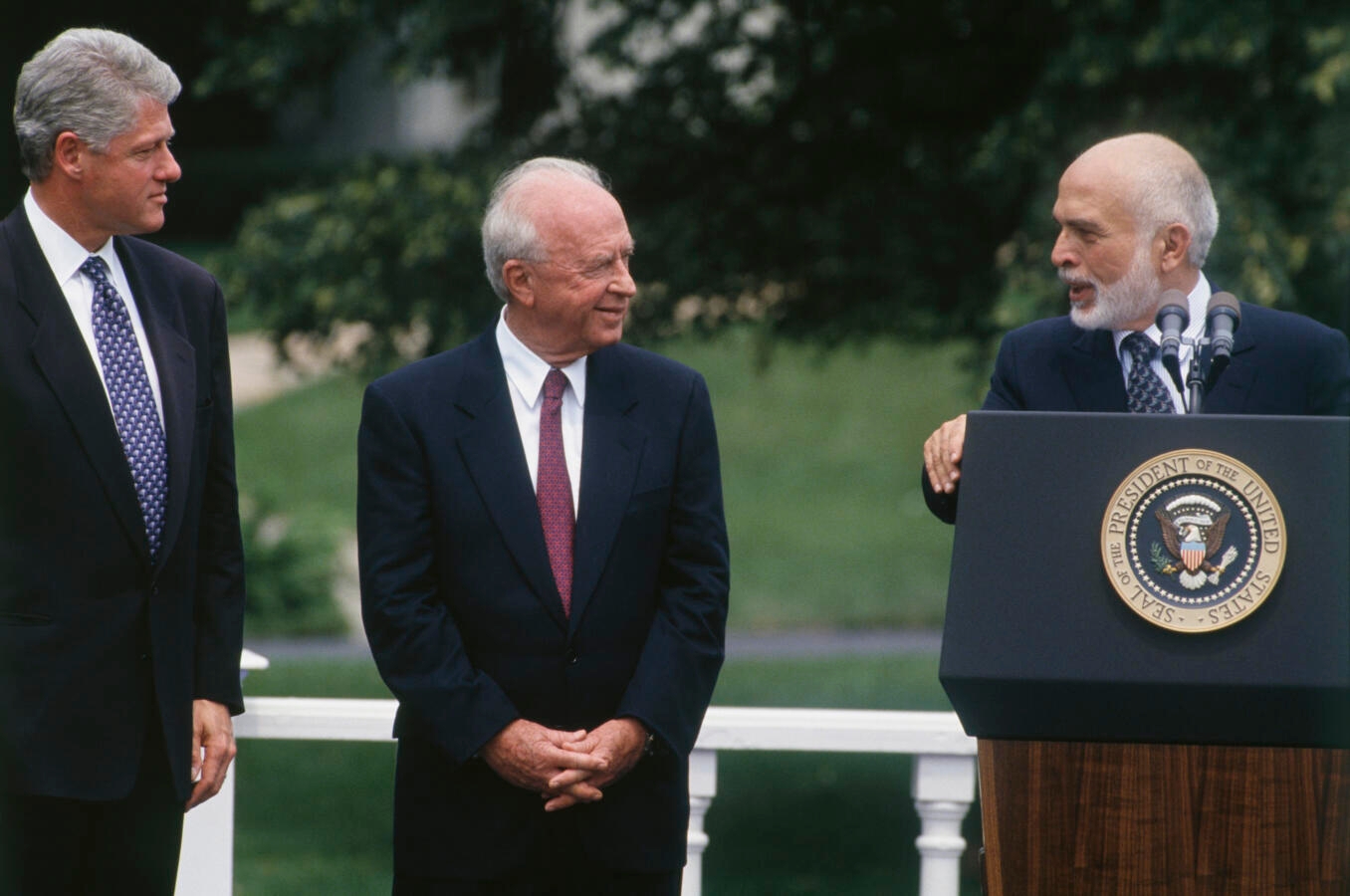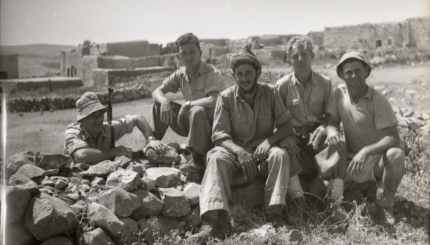Yitzhak Rabin was born in Jerusalem on March 1, 1922 to Rosa and Nehemia Rabin (Rubitzov). Shortly thereafter, his family moved to Tel Aviv. He attended Beit Hinukh Leyaldei Ovdim (Worker’s Children School) in Tel Aviv, and from age 15, Kadourie agricultural school. He initially failed the Kadourie entrance exam, but later won the High Commissioner’s prize for academic excellence.
At Kadourie, Rabin became friends with Yigal Alon, later a leader of the Palmah, the elite strike force of the Haganah underground. In 1941, Rabin joined the Palmah underground. In 1945, he was deputy commander of the operation that freed 200 illegal immigrants from the Atlit detention camp. In 1947, he was appointed Deputy Commander of the Palmah. He married Leah Shlossberg in 1948 and they had two children, Yuval and Dalia.
READ: How Mandatory Palestine Became Israel
Role in Israel’s War of Independence
As commander of the Harel brigade, Rabin played a crucial role in the defense of Jerusalem in 1948, particularly in operation Nahshon, which lifted the blockade to Jerusalem in the beginning of April 1948, and in fighting in the Katamonim. By a quirk of fate, Rabin was also the commander in charge in June of 1948, when David Ben Gurion gave the order to sink the Altalena, a ship carrying arms for the Irgun underground, which Ben-Gurion and others suspected was plotting a coup.
With your help, My Jewish Learning can provide endless opportunities for learning, connection and discovery.
Military Career
Rabin studied at the Camberly Staff College in Britain until 1953. In 1954 he was appointed head of the IDF (Israel Defense Forces) Training Branch by Moshe Dayan, and was promoted to Brigadier General. He planned the Israeli officers training college. From 1956-1959 he was Chief of Operations of the Northern Command, and in 1961 he became deputy Chief of Staff of the IDF. On Jan 1, 1964, he became Chief of Staff of the IDF, and led the IDF to victory in the Six Day War in 1967.
READ: Jerusalem, Gaza and the West Bank After the Six-Day War
Early Political Career
Rabin retired from the Army in 1968. Though he had not been a member of the Mapai party, he joined the successor Labor party and was subsequently appointed ambassador to the United States, a political exile intended to keep him from being a serious contender for office. As ambassador, he was the architect of the close relationship between Israel and the United States that evolved after the Six Day War, which in his view had to be based on shared strategic concerns and the strategic value of Israel to the United States rather than appeals to the power of the Jewish vote.
1974-1977 Prime Minister Term
In 1973, Rabin returned to Israel and became Minister of Labor in the cabinet of Golda Meir. Following the resignation of Golda Meir, Rabin became Prime Minister on June 2, 1974- – the youngest in the history of Israel and the first native-born Israeli (Sabra). In 1977 however, Rabin resigned as Prime Minister and head of the Labor party in favor of Shimon Peres after it was revealed that his wife, Leah, had illegally maintained a foreign currency account containing about $3,000 in the United States.
Rabin as Defense Minister
From 1984, Rabin served as Defense Minister in the unity governments under Shimon Peres and Yitzhak Shamir. Rabin was responsible for the withdrawal from most of Lebanon, and was also responsible for Israeli policy during the [first] Intifada. He is famously quoted as having said of the Palestinians, “We will break their bones,” but his wife, Leah Rabin, insisted in her book Rabin: Our Life, His Legacy that he never said it. Other versions claim that Rabin made the statement in order to encourage soldiers to refrain from shooting at stone-throwing Palestinians.
Oslo Peace Accords

In 1992, Rabin was chosen as leader of the Labor party, replacing Shimon Peres. He led his party to victory over the opposition Likud for the first time since 1977, and became Prime Minister in June of 1992, assuming the post of Defense Minister as well, and giving Peres the post of Foreign Minister. His unequaled credentials as a war hero and elder statesman made it possible for him to overcome the divisive internal politics of the Labor party, and subsequently lead Israel to the Oslo peace agreement with the Palestinians and peace with Jordan. In 1994, Rabin was awarded the Nobel Peace Prize along with Yasser Arafat and Shimon Peres in recognition of their role in the Oslo peace process.
Rabin was known for his bluntness, analytic mind, and colorful colloquial Sabra idioms, delivered in his slow deep bass voice that became a hallmark of reassurance to two generations of Israelis, and a source of annoyance to political enemies.
Incitement and Assassination

As the reality of probable Israeli concessions to Palestinians came closer, and as Palestinian terror groups launched more and more ambushes and terror attacks (though still relatively minor at the time), Rabin’s popularity plummeted. Violent demonstrations caricatured Rabin as an SS officer, and at one point demonstrators began vandalizing his official car. A group of right-wing demonstrators gathered outside his Ramat Aviv apartment each day to chant insults and threats. The security apparatus did very little to stop this activity. Ariel Sharon claimed that warnings of threats on Rabin’s life were political fabrications. Rabin responded by organizing a giant peace demonstration, with the theme of “Yes to Peace, No to Violence.”
The rally was held in the main square of Tel Aviv on the evening of November 4, 1995 and was well attended. Rabin shared the podium with his ex-rival Shimon Peres, singing songs of peace and declaring his determination to carry through the peace agreements, and then left to go to his car. As he approached his automobile, a right-wing fanatic, Yigal Amir, inflamed by incitement of extremist settler rabbis, broke through the very lax police security and fired several shots at Rabin’s back. Rabin was rushed to Ichilov hospital and died shortly thereafter. His funeral was attended by numerous world leaders, including US President Clinton, who made the phrase “Shalom, Chaver” (adieu, comrade) famous, and most notably His Majesty King Hussein of Jordan.
READ: The Legacy of Yitzhak Rabin
This Rabin biography is copyrighted by and reprinted with permission of MidEastWeb for Coexistence, RA.
Moshe
Pronounced: moe-SHEH, Origin: Hebrew, Moses, whom God chooses to lead the Jews out of Egypt.
Yitzhak
Pronounced: eetz-KHAHK, Origin: Hebrew, Hebrew name for Isaac.



